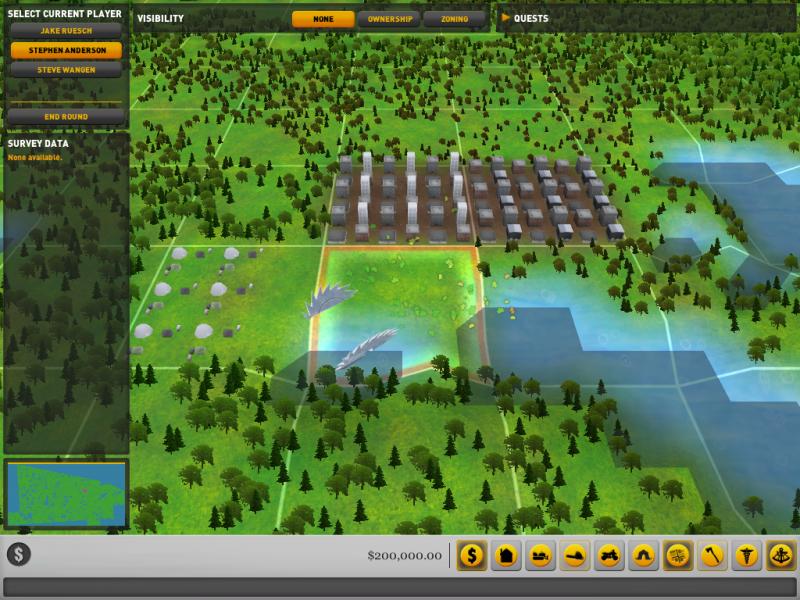Posted 01/28/13
Using an online game to collect data while simultaneously educating the general public on how conflicting land use pressures affect land use change dynamics is the major contribution of Trails Forward. Steve Wangen is a classically trained forester who fell in love with modeling and programing without forgetting his roots in conservation and resource management.
Trails Forward is being developed as on online role-playing game that allows players to take on various roles that represent some of the primary drivers of land use change. The main goal is to increase awareness regarding land use conflicts using a role playing game to observe how individual decisions affect the landscape and the surrounding environment. It is the cumulative behavior that will describe the entire system (in this case and for the time being, rural Wsiconsin). The system includes human and animal populations that interact in a multi-agent model of land and forest. The dynamics of the roles are intended to represent the multiple demands placed on the landscape in northern Wisconsin, and engage players to think about how they can optimize their land-use strategy to maximize their own objectives, and then cooperate with other players (either online or in an educational classroom setting) in an attempt to coordinate multiple objectives. Through this gameplay, they manipulate the landscape by implementing forest harvesting, housing development, and conservation actions (ie. preserving habitat, restoring habitat, reintroduction of wildlife species, etc). Trails Forward emerged from a multidisciplinary collaboration between economists, environmental scientists and computer science people from across the University of Wisconsin – Madison. The group is broad, but this story will focus on Steve Wangen’s role in the project. Steve is responsible for creating the agent-models that will interact inside the game. Each species within the game has its own underlying model that takes into consideration the species ecology and known behaviors, as well as habitat needs. One of the interesting aspects of this approach is that it provides a unique interaction between data driven ecological models and the decisions made by individual players in the pursuit of specific goals and results? How are these ecological models influenced by land use change conflicts? The development of individual models is difficult on their own, but later on they also need to be integrated and need to interact with all the other models inside the game. Steve’s focus and main concern is on creating new models to inform game play. The strategy is to build a bridge between Computer sciences and Ecology and this means many hours talking to ecologists, reading about a species biology, ecology, behavior, preferences, programming and finally, testing. A solution the group found to test their game and increase the amount of models in it, was to offer a ‘Agent Programming for Conservation Games’ class at UW – Madison where students from different backgrounds work together to create new models. The results have been great so far and the interest in the class is growing. In sum, Trails Forward is unique in that it focuses on developing conceptually productive interactions between learners and content, where the cognitive and perceptual traits of humans are applied to data interpretation tasks which are relatively easy for even untrained humans, but difficult for computers to process. However, Steve has a challenging task ahead of him regarding modeling, but a very strong driver: to educate players while gathering data to evaluate how individual decisions affect the landscape.

“
Story by Patricia Alexandre
